President links EU competitiveness to strategic autonomy goals
President Nikos Christodoulides on Friday addressed the BusinessEurope Council of Presidents in Nicosia, stressing that the Cyprus Presidency of the Council of the EU, commencing in January 2026, will be guided by the imperative to deliver a stronger, more resilient, and more competitive union.
Ahead of his official address at the BusinessEurope summit, hosted in Nicosia, Christodoulides commented that the presence of representatives from the European business community has added value for the country.
He said that more than 70 per cent of the files to be handled during the Cyprus Presidency concern the competitiveness of the European Union.
“Finally, this issue is being discussed seriously,” the president said.
“We have moved beyond the stage of discussions and we have moved on to the stage of decisions, so that everything that needs to be done is done to strengthen the competitiveness of the European Union, an area where we lag behind internationally,” he added.
He explained that collaboration with the business community of Europe is particularly important.
“We had an exchange of views yesterday at the Presidential Palace. Personally, I can say, it was a discussion very beneficial for us, in view of taking over the Presidency, and I am truly glad I had this opportunity,” he said.
“This discussion”, he added, “would continue as we have common goals, common pursuits, so as to make the EU competitive.”
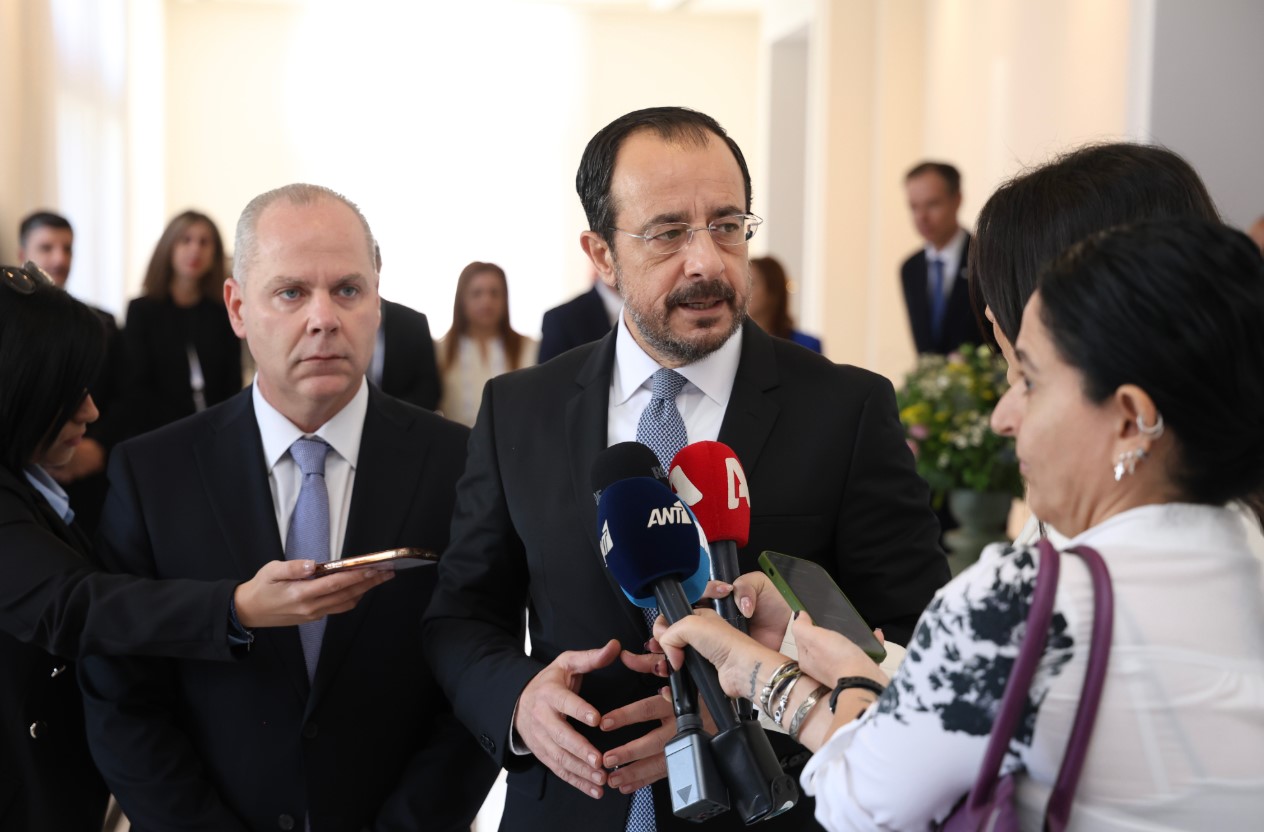
Moreover, Christodoulides linked competitiveness directly to the EU’s strategic goals.
“The competitiveness of the European Union is something that also concerns the strategic autonomy of the European Union, because if you are not competitive, you cannot achieve the goal of strategic autonomy,” he said.
“Therefore, both yesterday’s discussion and today’s and their presence in Cyprus are particularly important and honourable,” he added. “It has and will have added value for us, who in 40 days will take over the reins of the European Union.”
The president echoed these sentiments in his keynote address to the summit.
Firstly, Christodoulides welcomed BusinessEurope to the “European Union’s south-eastern frontier and Europe’s last divided capital“.
“Your presence here at this particular juncture – 40 days to the Cyprus Presidency of the Council – truly matters,” he said.
“Cyprus is proud to lead the Council at a moment when we need to collectively deliver for Europe, for our citizens, a stronger, more resilient, more competitive Union,” he said.
He views the upcoming role as being the voice of the 27 member states and negotiating on behalf of the Council as honest brokers, “at what I consider to be an inflection point for Europe, for our union”.
The president emphasised the necessity of partnership, saying that “it is at this very moment, when we need to build the union up, that an impenetrable partnership with the business community is more vital than ever”.
He recognised BusinessEurope as having a key and irreplaceable role in shaping Europe’s most pressing agenda.
“That of driving forward our shared economic ambitions, the agenda of competitiveness, which lies at the heart of the union’s autonomy,” he said.

Christodoulides argued that economic strength and geopolitical relevance go hand in hand.
“We cannot truly be a global strategic actor as a union without being competitive,” he stated.
He added that “the Russian invasion of Ukraine has brutally brought to the forefront the price of dependency, and of the fragility of peace and stability in Europe”.
Reflecting on his time in Brussels, Christodoulides said that “the war against Ukraine has made that debate obsolete”.
He affirmed that European autonomy is now an imperative, saying that “it is not theoretical, it is an imperative that we need to deliver on with urgency”.
The president explained that “autonomy pertains to all aspects of existence as a union, extending beyond foreign policy to the economy and trade”.
“Autonomy is also the foundation of European competitiveness,” he stated, which “translates into affordable and secure energy, resilient supply chains, strong industrial capacity, modern digital networks, and a Single Market that works without fragmentation”.
“Autonomy is not about turning inwards, it is about being extrovert from a point of internal strength,” he added.
“To achieve this”, the president continued, “Europe must regulate better, not more.”
“Reducing administrative burden, cutting red tape and simplifying reporting obligations will be a cross-cutting priority for our Presidency,” he stated.
Moreover, he mentioned that “Cyprus will work hard to make the European landscape simpler, faster, and smarter, through the six existing and six expected Omnibus Simplification Packages”.
He called the Single Market Europe’s greatest economic asset, yet still its most underused one, saying that completing it and strengthening its governance are among the fastest paths to raise productivity and growth.

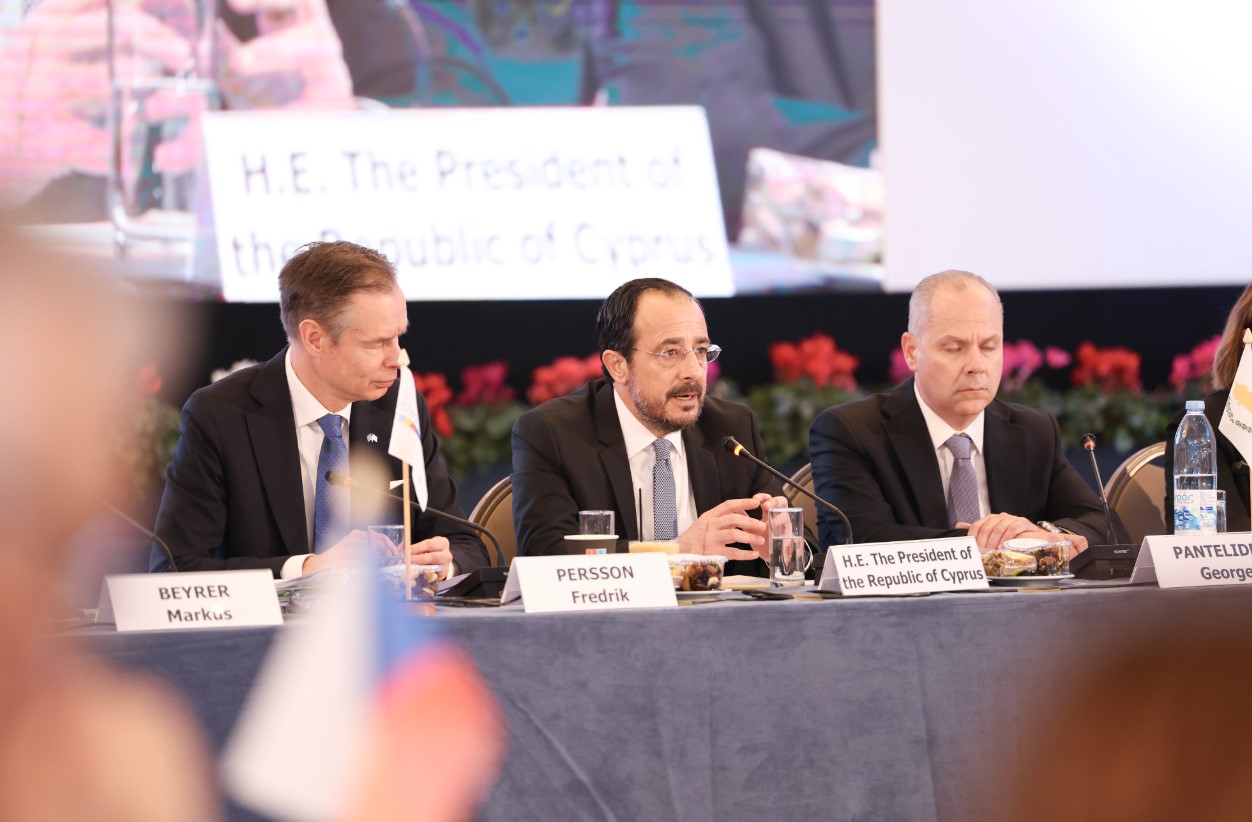
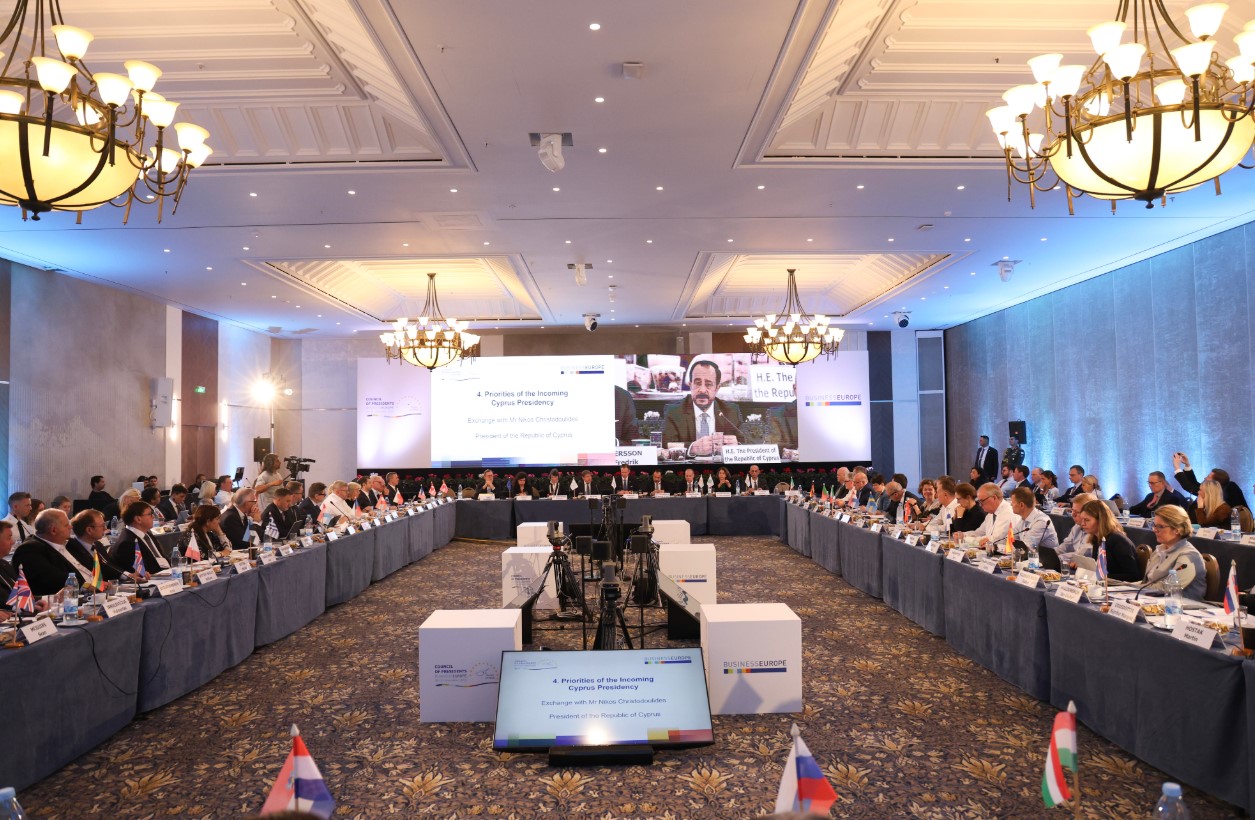
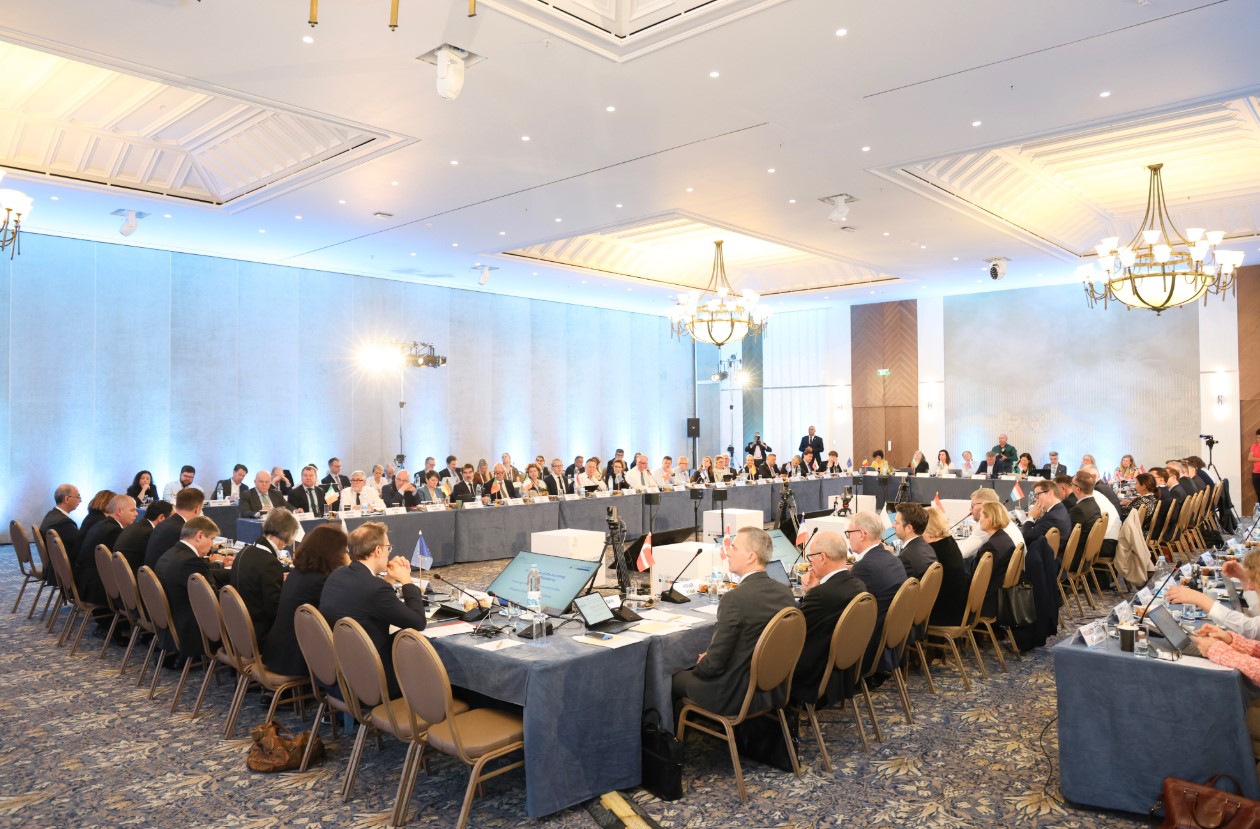
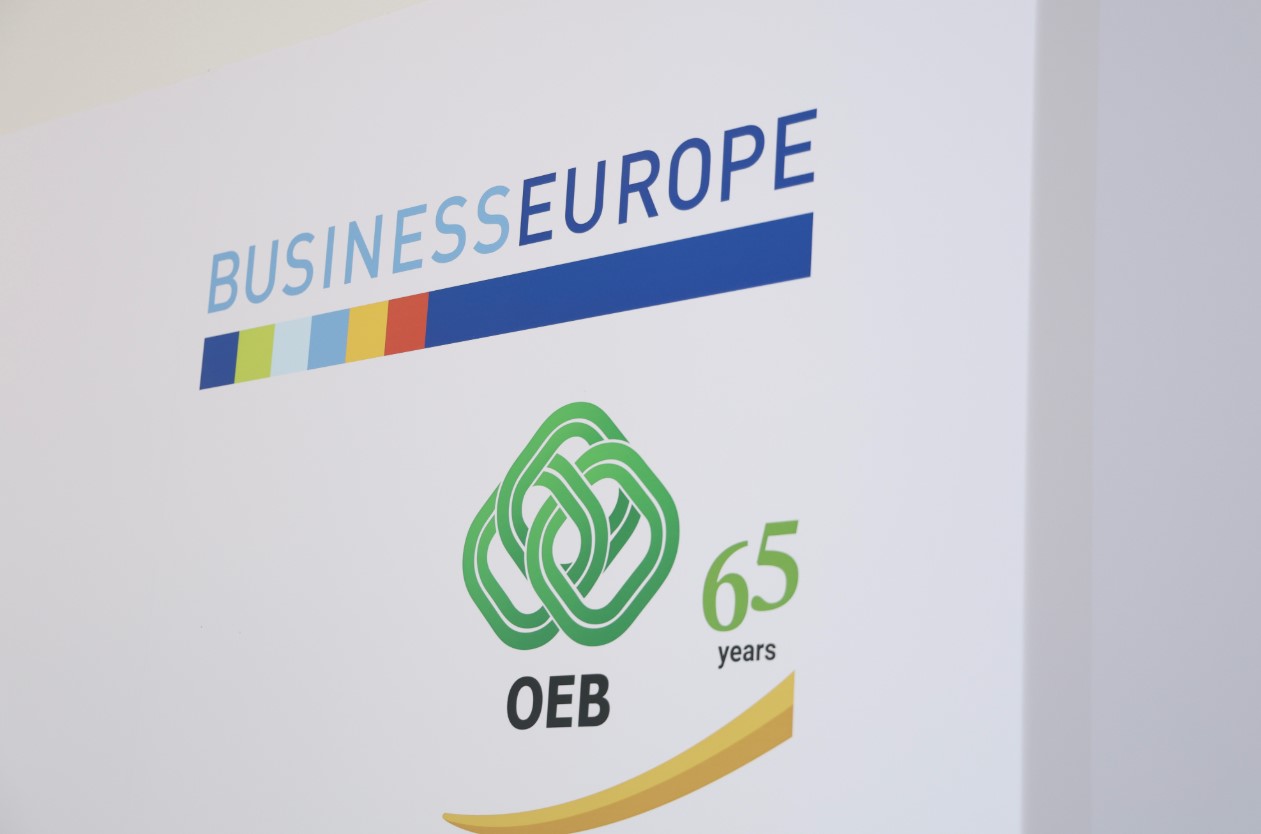


In addition, he pledged that the Presidency will ensure structured follow-up and political guidance on the forthcoming Commission’s Single Market Roadmap to 2028.
The president also highlighted the importance of a more robust and extrovert trade policy.
“Autonomy and being open to the world are complementary,” he said.
He committed to making advancing Europe’s trade agenda a central element of the presidency.
“We must act decisively to conclude key strategic trade agreements,” he said, particularly with the US, Mexico, Mercosur, Indonesia, India, and the UAE.
He maintained that the wider Middle East and Gulf is vital for the EU and that Cyprus, as the only member state in the region, has “consistently and reliably served as an enabler in advancing this potential“.
Regarding the budget, Christodoulides stated that “the new Multiannual Financial Framework must encapsulate all the elements that will enable us to implement our strategic goals”.
He said that negotiations on the new MFF will be challenging but promised that “Cyprus is up to the task”. He added that the aim to complete negotiations by the end of 2026.
Christodoulides also highlighted that the competitiveness reform agenda Europe is advancing is the same one his government has been driving at a national level.
He stated that Cyprus today stands “as a European economic success story, embracing a new era of sustainable growth and economic engagement”.
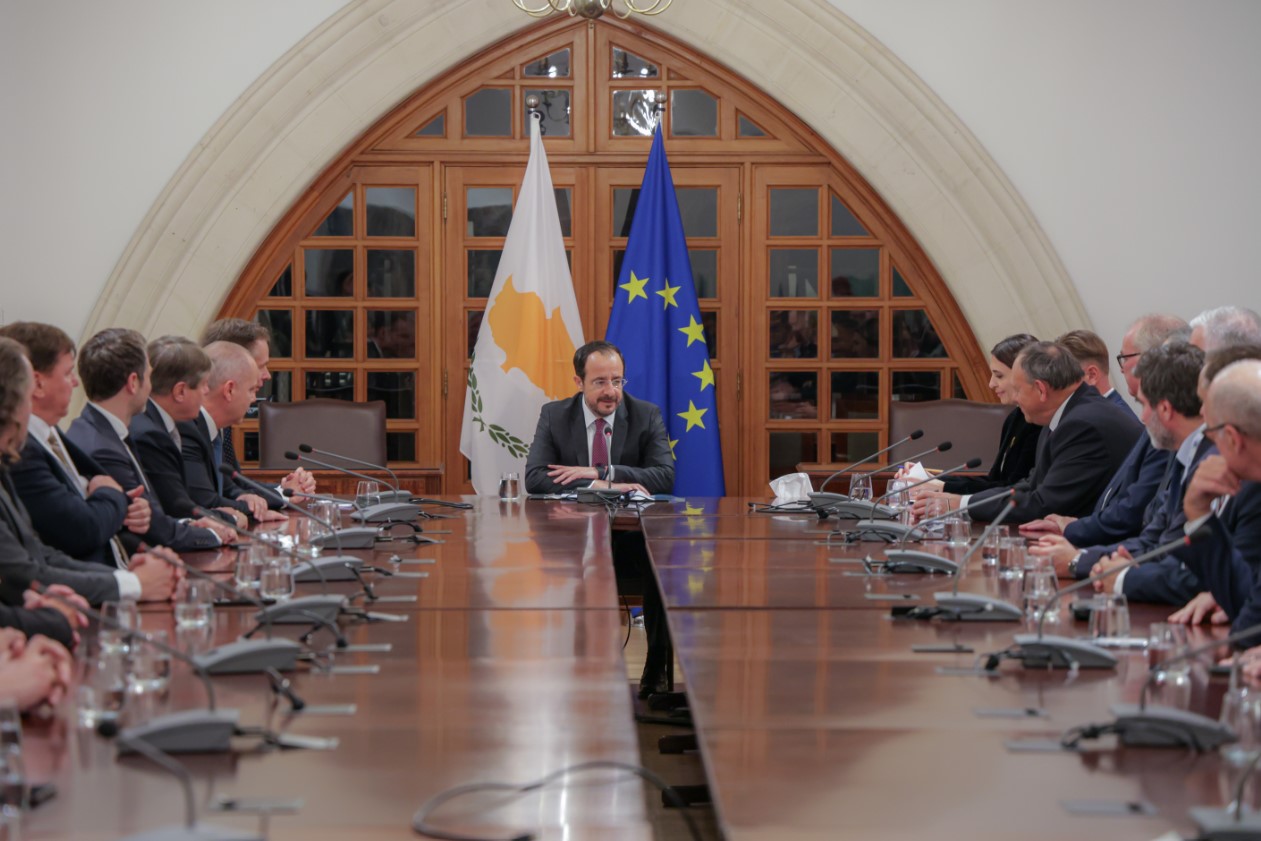
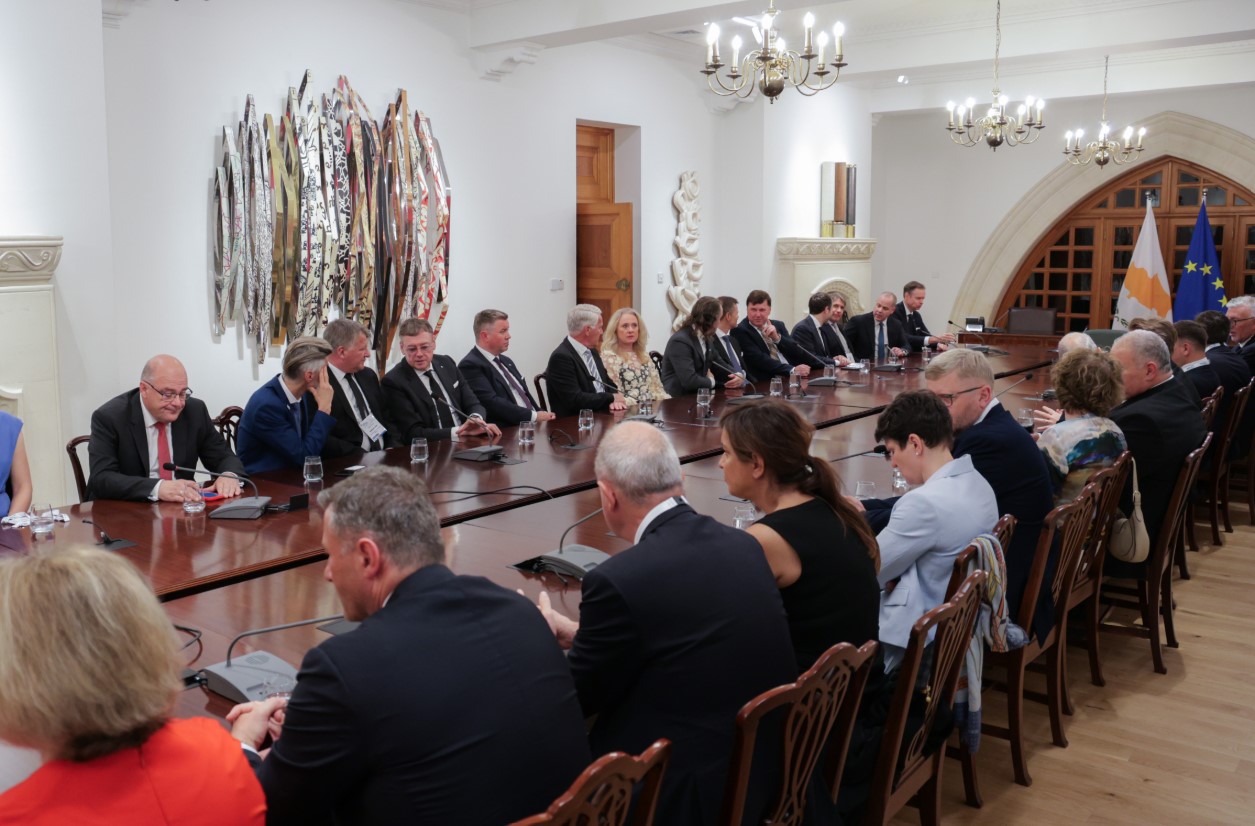
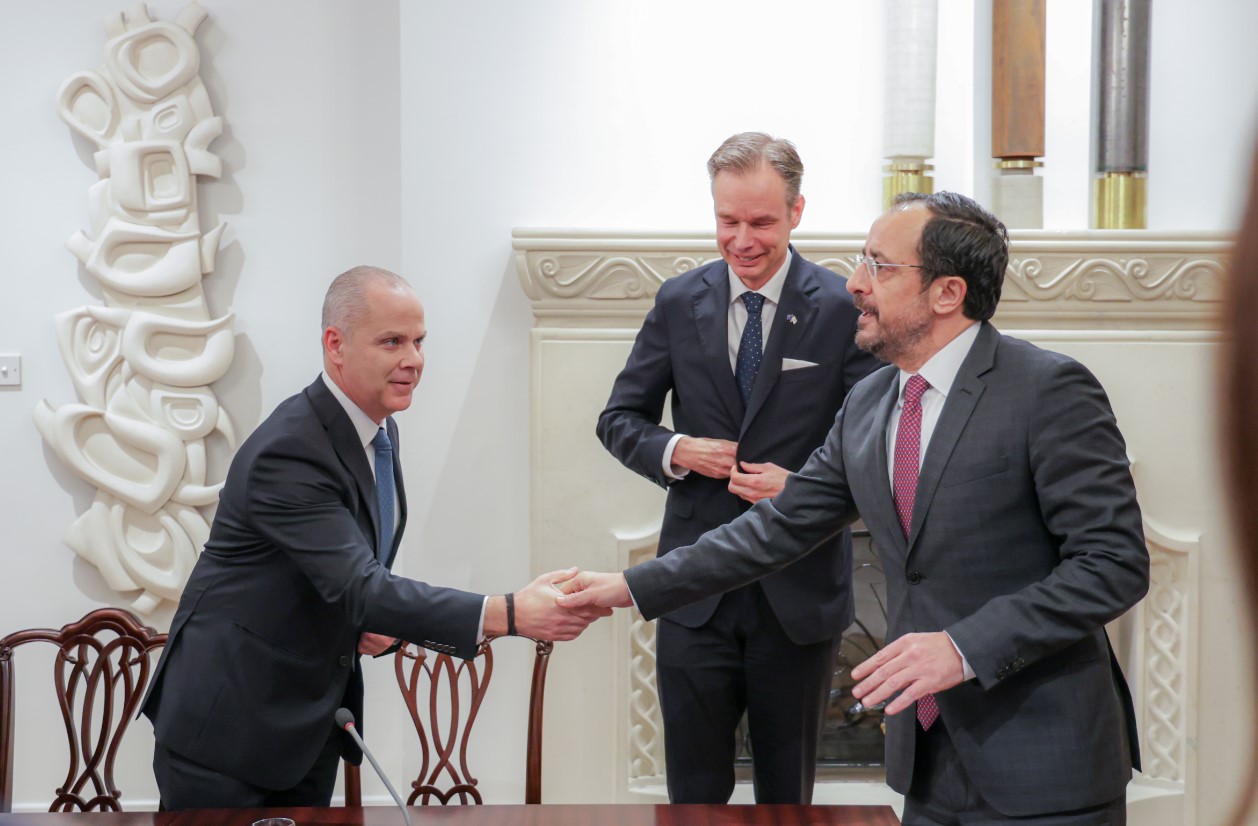
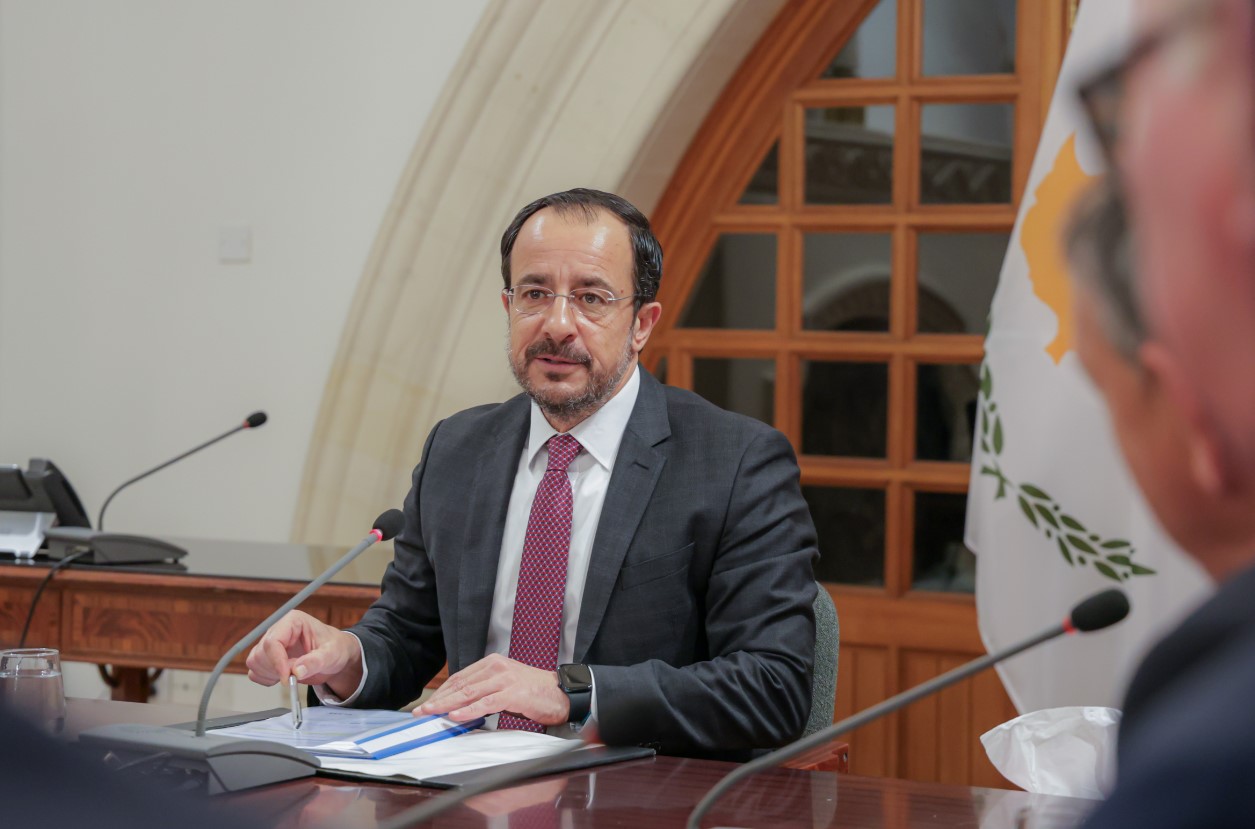
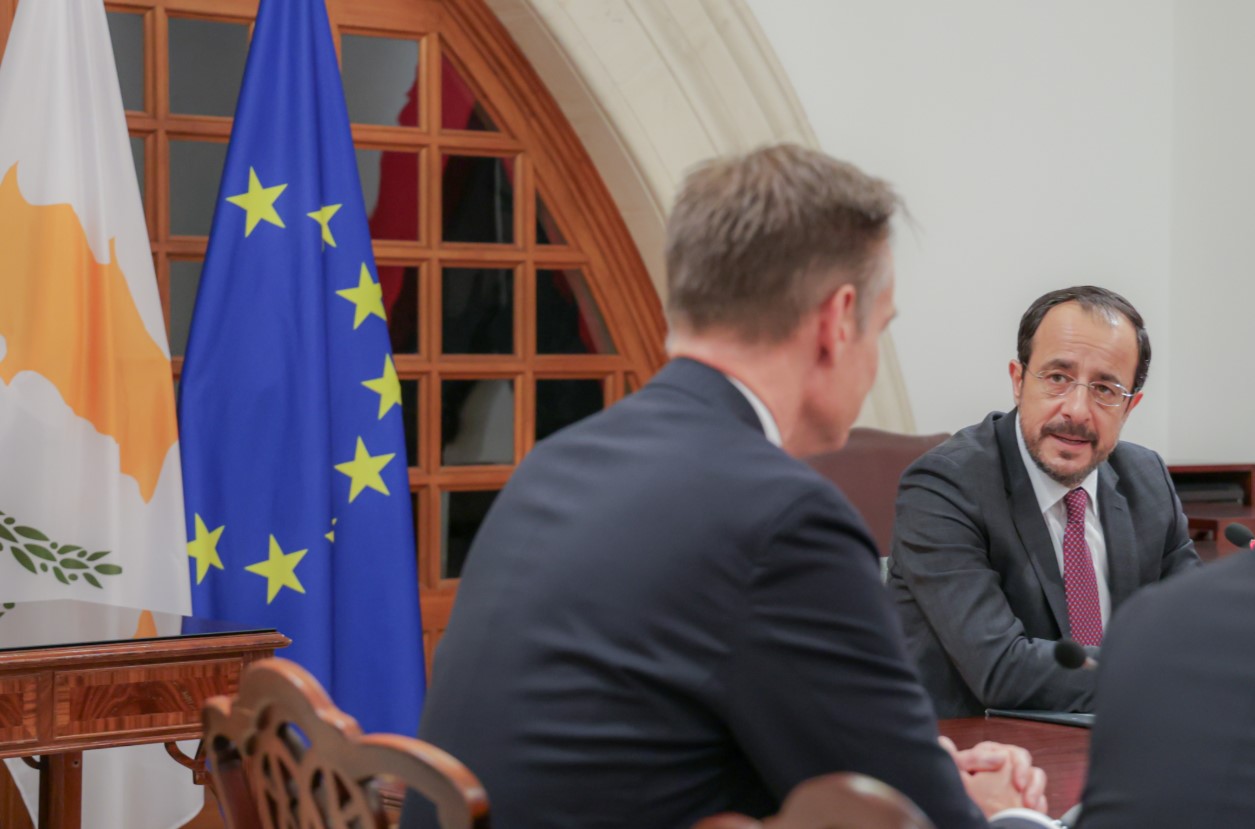
Citing economic data, the president said that “over the last three years, Cyprus has recorded steady growth that is among the highest growth rates in the Eurozone”.
He mentioned that in 2024, the growth rate was 3.9 per cent, and the forecast for 2025 is 3.4 per cent, the third highest in the Eurozone.
Furthermore, he reported that unemployment has fallen below 5 per cent, and the primary surplus for 2024 has exceeded 4 per cent, while public debt is already below 60 per cent of GDP.
He also stated the restoration of the country’s ‘A’ investment-grade status by all major rating agencies, with S&P Global Ratings recently revising Cyprus’ outlook to positive from stable.
“Cyprus and its people will draw on their unparalleled resilience, and will work hard to deliver on this promise during the upcoming Cyprus Presidency of the Council,” Christodoulides said.
“Proving that the added value of each member state of our European family does not correlate with its geographical expanse, but with its commitment to the European project, the added value it brings, and its results in driving the European agenda forward,” the president concluded.
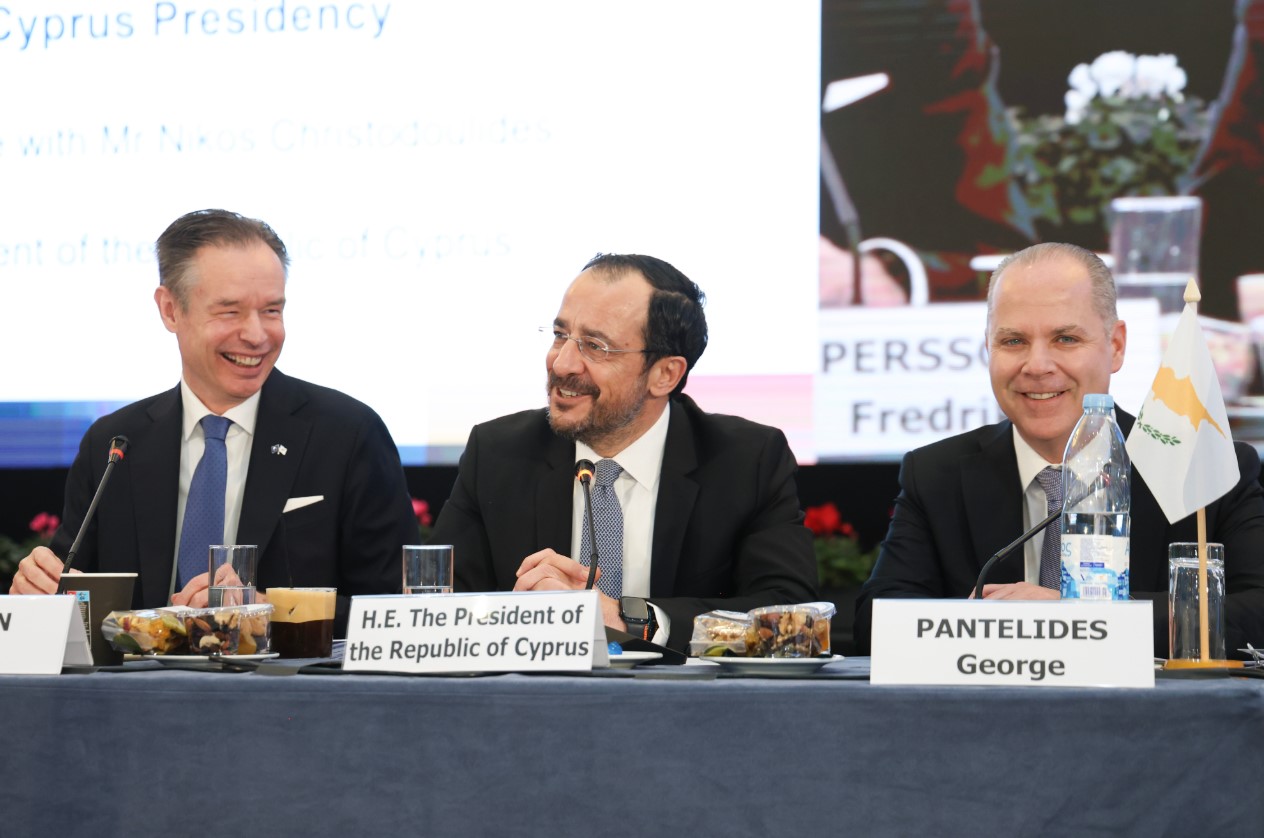





Click here to change your cookie preferences